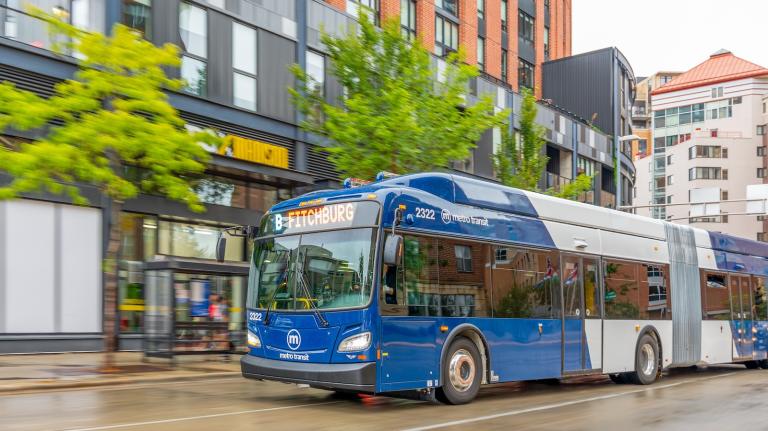Here is the lowdown: Transit fares generally don’t cover operating expenses. Transit systems do not, unfortunately, turn a profit. In many conservative circles, this is considered a damning indictment of the whole idea of public transit — which is itself a damning indictment of the analytical powers of the guilty conservatives.
We should expect those who benefit from a technology to pay for it. This is the basic idea behind a market economy — people aren’t in the habit of giving away something for nothing, and the best way to allocate scarce resources is to let buyers and sellers agree upon a price, which is then paid by the buyer who, we expect, will benefit from the purchase.
But sometimes, when a buyer decides to spend money on a good or service, other people benefit as well. If I build an exceptionally attractive house in a neighborhood, I benefit, but so too do my neighbors, who get to look at the house and whose own homes may appreciate thanks to their location in what is now a more attractive neighborhood. When I pay college tuition and get a degree, I benefit, but so too do future colleagues, who will enjoy greater success as part of a highly educated labor pool. If government does nothing in such situations, then we will get the level of attractive homes or college educations that suits the direct beneficiaries of such investments — but that doesn’t mean that we have provided the number that maximizes the benefit to society as a whole.
This is what’s called a positive externality, and in such situations society is made better off if government encourages more investment than the market alone will make. Transit is rife with such positive externalities. When a transit system is built, riders are the direct — but by no means the only — beneficiaries. Employers and businesses enjoy increased access to labor markets and customers. Drivers who shift to transit contribute to reduced congestion and accident costs. Per capita fossil fuel consumption and carbon emissions fall. Other examples abound.
As such it is welfare reducing to ask riders to shoulder the entire burden of operating costs; a system that ran a profit would be imposing avoidable costs on society. Economic research by Ian Parry and Kenneth Small, consistent with other studies, showed [PDF] that on average a fare subsidy of 50 percent of operating costs is justified, rising to as high as 90 percent in some cases.
And so it is wholly appropriate that operating expenses come of out government revenues as well as out of the farebox. But we are approaching a crisis. Transit ridership has grown even as vehicle miles traveled have peaked and fallen [PDF]. In a transportation system that relies heavily on gas tax revenues, the result has been budget meltdowns and service cuts. This is the transit paradox. Transit is dependent upon funding from drivers, so reduced driving necessitates transit cuts.
As Transportation for America has documented, those cuts are now national in scope. And as The New York Times noted this week, they are deep and likely to be very painful. Thousands of bus routes are being cut. Rail service is being curtailed. Fares are going up and workers are being laid off. These changes will directly and negatively impact low- and middle-income households. They’ll force some households to drive, reducing discretionary income. They’ll keep others from jobs and shops, adding to unemployment. And they’ll serve to reverse one of the most positive green trends of recent years: the increase in transit ridership [PDF] to levels unseen in over half a century.
Billions in transit funds have been added to the stimulus, but targeted at capital spending. Such investments are necessary but do not address this growing crisis. State governments will also get a fiscal boost from the stimulus, which might be used to support transit operation. But state budgets have many holes to fill, and multi-jurisdictional systems are likely to be left out. Direct operational funding is needed.
Operational funding is good stimulus, progressive, and green, and it will help to prevent a significant setback to transit that will overwhelmingly harm lower-income workers and households. As a nation, we were willing to part with billions to preserve the automakers for a matter of months, despite obvious falling demand for their historically dirty products. The economic case for transit operating assistance is at least as strong. If we decide to leave systems on doomsday budgets now, we will pay dearly for it later.


